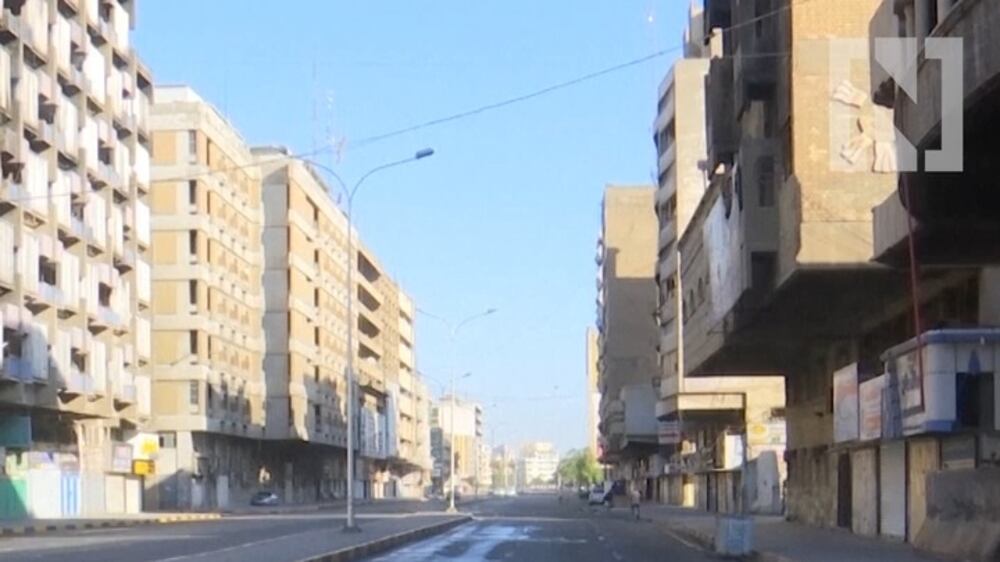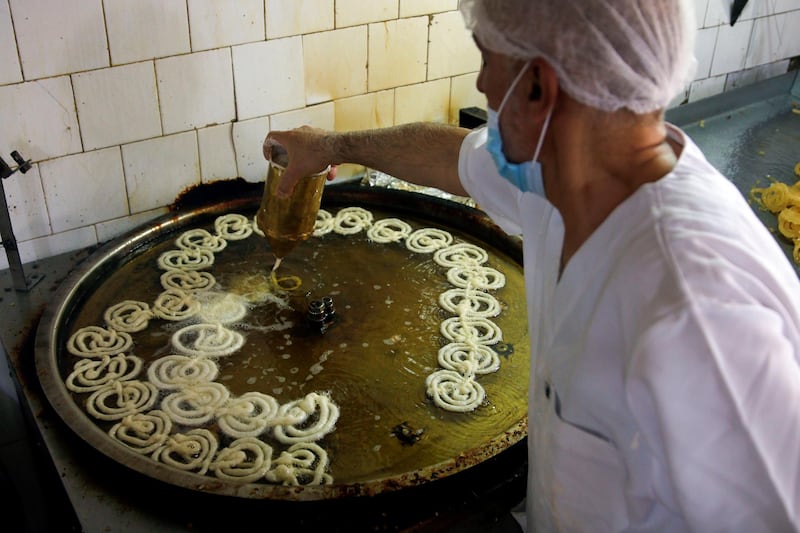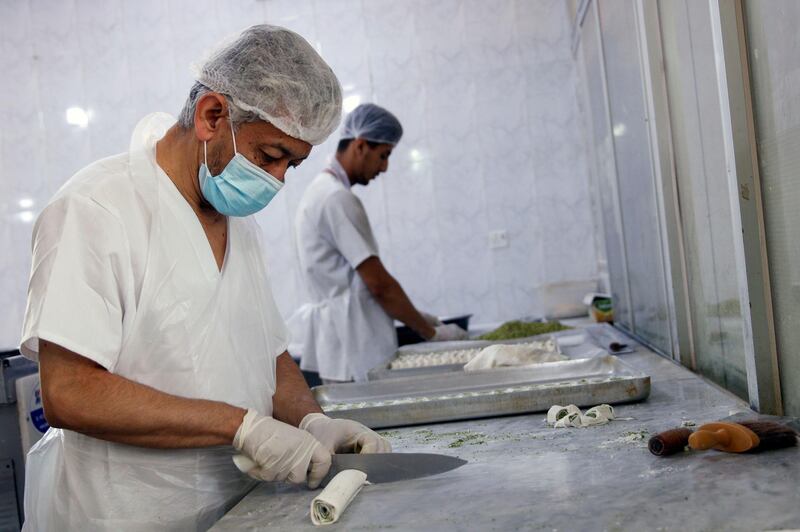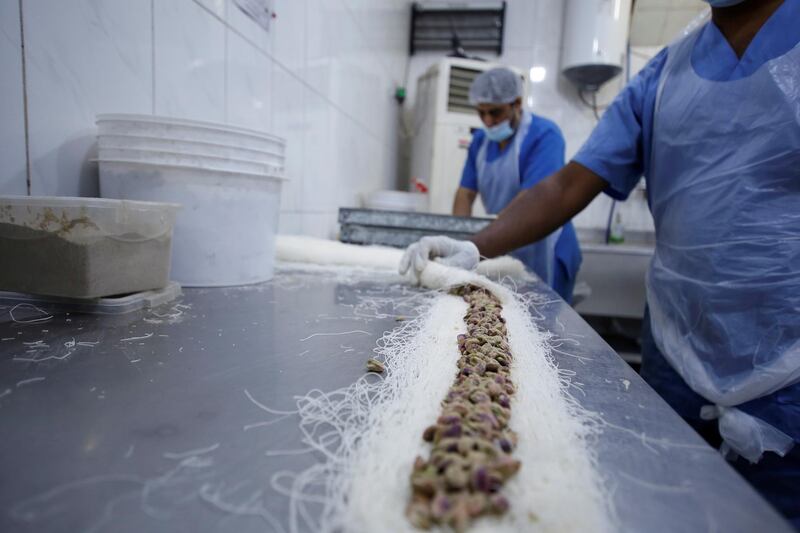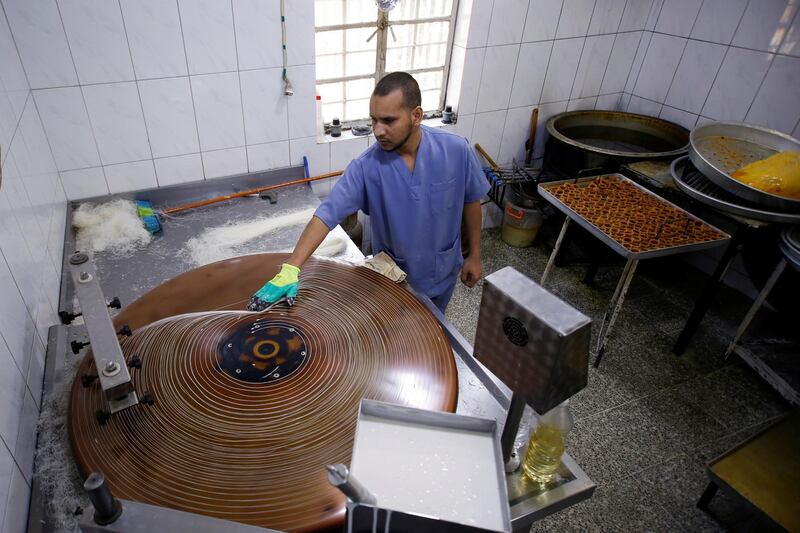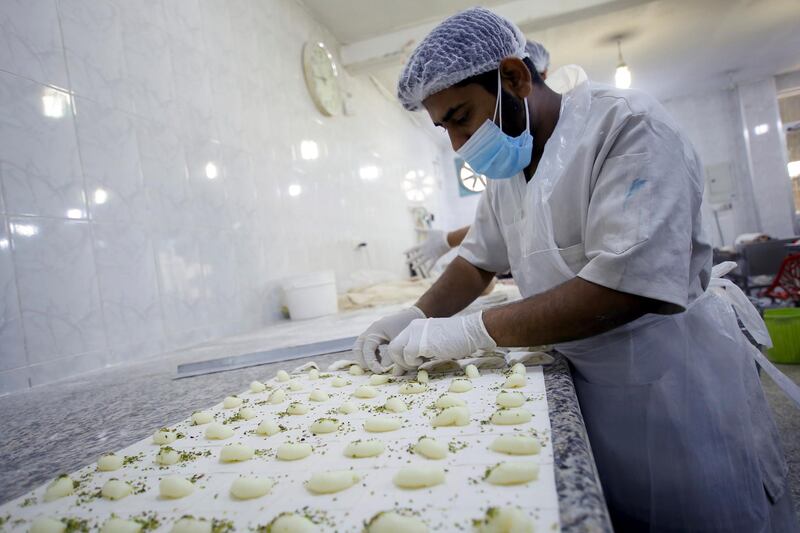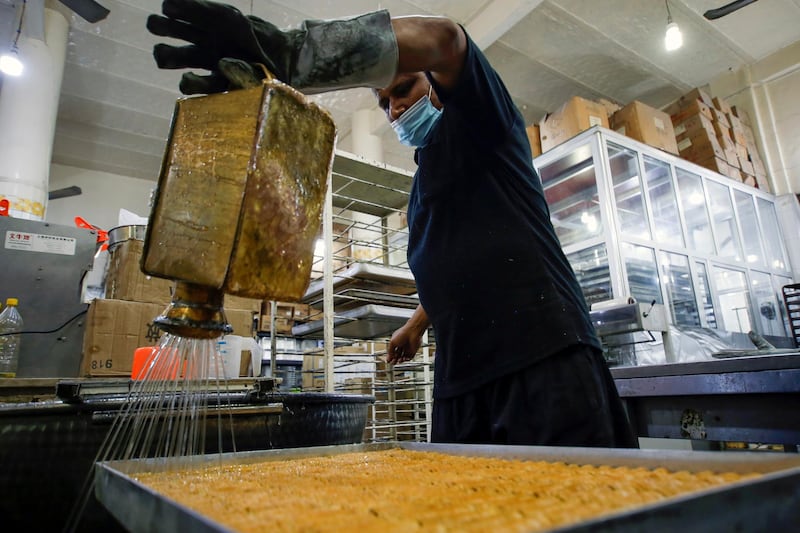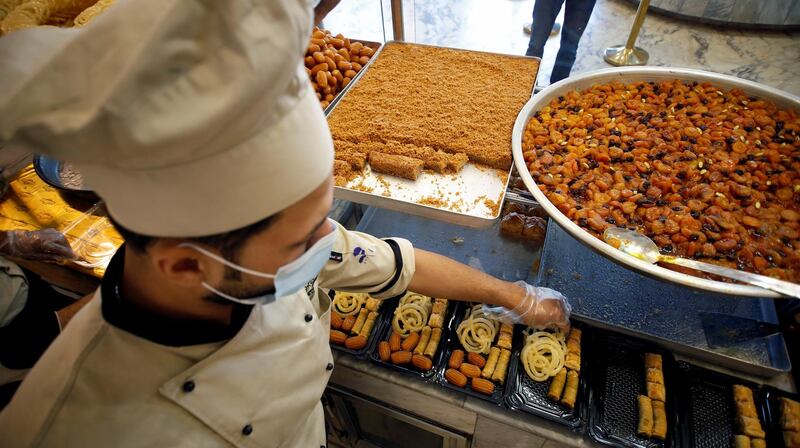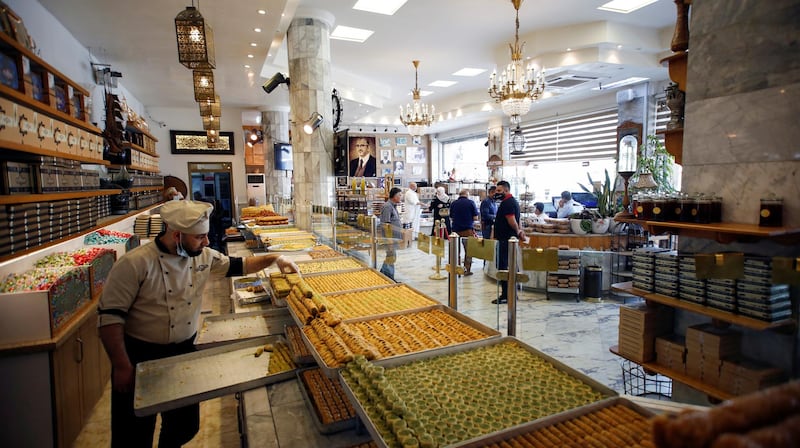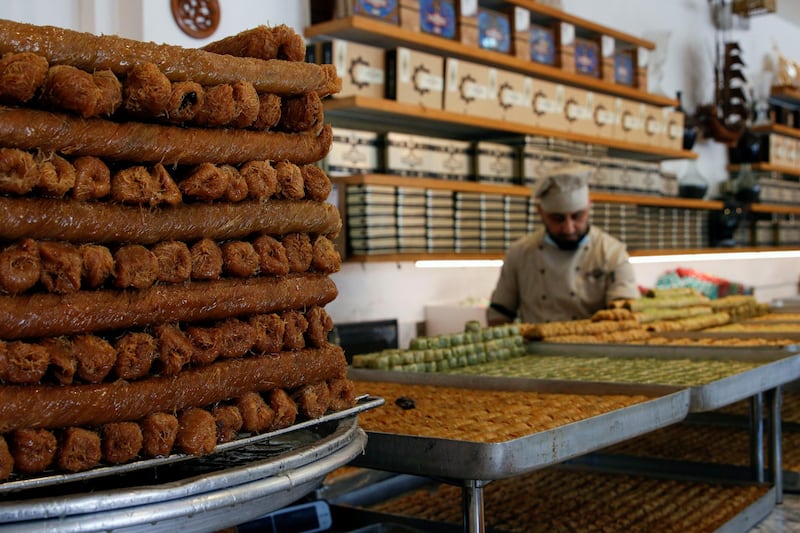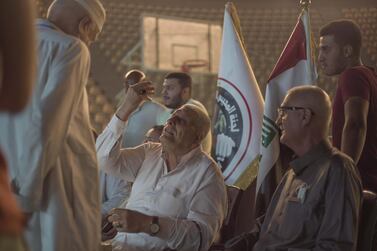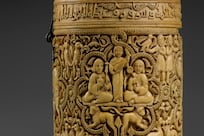Dawn on Thursday will see Sunnis and some Shiites across Iraq begin to mark the Eid holiday that brings Ramadan to a close.
With no moon visible on Tuesday after Maghreb prayers, Wednesday was marked as the 30th day of Ramadan.
Despite Iraqi authorities announcing a 10-day Covid-19 lockdown from May 12 that runs straight through a holiday usually marked by mass gatherings and shopping trips, many said they would still enjoy the occasion.
Shopping malls, restaurants, cafes, cinemas, parks, swimming pools and gyms are all closed, according to the country’s Higher Committee for Health and Public Safety said. Social events, such as wedding parties or funerals, cannot be held.
But pharmacies, bakeries, supermarkets and groceries are exempt from the lockdown and restaurants can make food deliveries.
During Ramadan, authorities imposed a nightly lockdown from 8pm to 5am, and a 24-hour lockdown applied on Fridays and Saturdays.
Despite the rules, hundreds have still flocked to the markets every day to buy new clothing and sweets.
"Although the new measures have affected our mood, but we will celebrate," Thurya Jabir, a 44-year-old housewife told The National.
The mother of three was in Bagdad’s upscale Mansour commercial district, shopping for the holiday along with her daughter-in-law.
“We are looking for clothing for home such as tracksuits since we are going to spend the holiday in house,” added Ms Jabir, laughing.
But she said her family will not give up on Eid Al Fitr traditions.
They have still prepared Kleicha, an Iraqi date cookie, and plan to cook “our special and tasty dishes” such as Quzi, lamb and rice, Dolma, meat and rice stuffed grape leaves, and Biryani, she said.
Undeterred by the lockdown, she said they still plan to meet up with family.
“We will exchange visits with relatives whenever we can and throw a banquet to celebrate my grandson's birthday,” she added.
The sentiment has given hope to shop owners who have stack up on goods for the holiday.
“The turnout is good nowadays,” said Abdullah Wisam as he stood outside his women’s clothing shop.
“The people are fed up and that they want to buy new clothing and to have some joy, even if they spend Eid at home,” Mr Wisam, 23, said.
He said he imported $38,000 worth of goods from Turkey before the holiday.
“Sales have decreased by nearly 30 per cent compare to last year, but people are still coming and get money out of their pockets and that’s encouraging,” he said.
He and other shop owners are also encouraged by the help of the security forces, allowing them to stay late despite the partial lockdown as some shoppers show up during the night.
The nation of 40 million people is withering a severe financial crisis resulting from the impact of plummeting oil prices on its oil-dependent economy and Covid-19 measures that have affected businesses.
To cope with the acute economic crisis, the government devalued the currency in December, pushing up prices by at least 25 per cent as Iraq depends heavily on imported goods and raw materials.
The pandemic and austerity measures pushed the national poverty rate last year to 31.7 per cent, up from 20 per cent in 2018.
Together with the deteriorated security situation – mainly because of a recent ISIS resurgence and assassinations of pro-reform activists – and the country’s political wrangling have left some Iraqis with no mood to celebrate.
“There is no Eid in Iraq for more than 30 years now,” said retired teacher Azhar Sadiq, 65.
“We have only wars, killings, kidnappings, chaos and lack of security,” she said. “It’s hard to find joy in the current situation. Eid and its festive atmosphere are gone a long time ago.”
Her family planned to spend the holiday in the northern self-ruled Kurdish region, but called off the trip due to the full lockdown.
She said she wasn’t in the mood to buy new clothing and didn’t even make Kleicha and instead bought them from bakeries.
“What we have now is only the name of Eid,” she laments.
